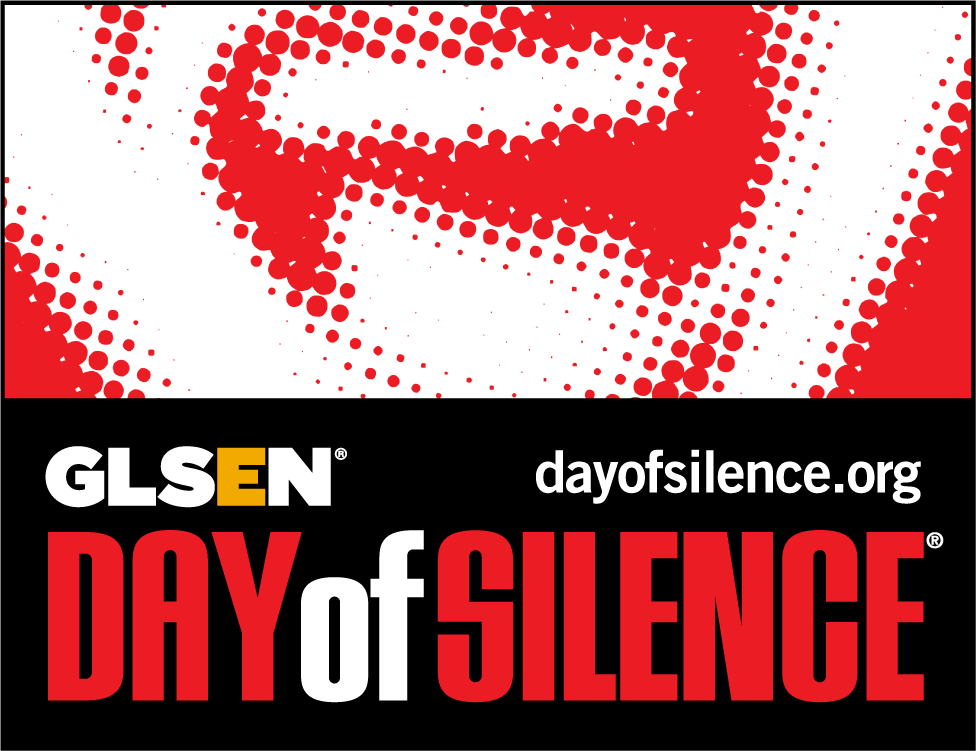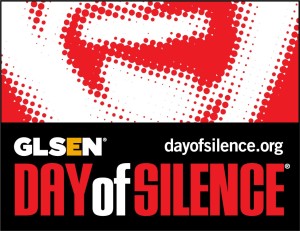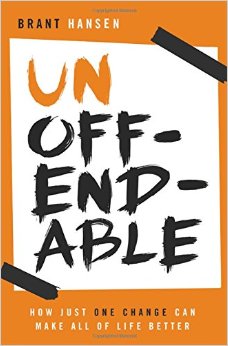

 This is a similar post to one I did in 2008. I feel even more passionate about it then I did then.
This is a similar post to one I did in 2008. I feel even more passionate about it then I did then.
Yesterday, an email was forwarded to me encouraging the boycotting of the April 17th Day of Silence and I want to offer my perspective for consideration.
For those of you who don’t know, the Day of Silence is a national day of action in which students across the country vow to be silent all day to call attention to the silencing effect of anti-LGBT bullying and harassment in schools. It is sponsored by GLSEN.
I’ve done a lot of thinking and research about this event. The organizer’s website says the purpose of the event is to bring: “attention to anti-LGBT name-calling, bullying and harassment in schools.” In contrast, the Concerned Women for America of Iowa email that I was forwarded claims “The Day of Silence exploits government schools, captive audiences, and anti-bullying sentiment to advance the left’s social, moral, and political beliefs and goals. GLSEN seeks to advance the belief that all public expressions of moral disapproval of homosexual activity are bullying.”
As a response to the Day of Silence, CWA and a host of other fundamentalist Christian organizations are calling for parents to…
1. Write letters to principals asking if students will be allowed to be silent on April 17th.
2. [if affirmative] Keep your kids home from school on that day as a way to hit them in the pocketbook (supposedly, schools get government revenue based on daily student attendance.)
3. [if affirmative] Demand every parent in the school be sent a letter explaining what is being allowed and that GLSEN is behind it.
They are calling it the “Day of Silence Walk Out.” You can read about it yourself here.
To me, this is a knee-jerk reaction that does far more damage than it does good. Here are six reasons why I think this reaction is bad for our cause.
WHY THE “WALK OUT” IS THE WRONG RESPONSE
First, these Christian organizations are ignoring the clearly-articulated purpose of this student-led event and are reacting to assumed motives about GLSEN’s agenda. I believe we must base our response on the event’s stated purpose, not our assumptions or interpolations. To do otherwise makes us look like fear-mongering, paranoid, over-reacting, extremists, who don’t understand plain English. To put it in perspective, suppose atheists did the same thing with our event, “See You At The Pole”. Every participating Christian student knows that the event’s purpose is simply to pray for our schools. What if atheist organizational leaders sent emails to their constituencies and the principals claiming that despite the stated goals SYATP is really “a day for Evangelical Right-Wingers to proselytize our campuses, cramming the Bible down our impressionable children’s throats and trying to make Southern Baptists out of our kids.” Would that be fair? No. Similarly, we need to react to this event on its own and not engage in an unnecessary battle.
Second, one of the key justifications for the DOS protest is that students who are silent on that day will cause a big disruption to education. Really? Does this mean that students with laryngitis or who are mute are also a major disruption to education? This seems like a cheap-shot. How much of a hindrance to education could this be anyways? Quieter classrooms with less chatter and wise-cracks might actually be better learning environments! What about letting the “free market” system do what it does best. If education is actually hindered, let each school or classroom make its own guidelines accordingly. Pressing for universal rules to address theoretical obstacles seems like a poor use of energy.
Third, how is keeping our kids home on that day not a disruption to education ten times worse than students not speaking? Think about how hypocritical this sounds: If you don’t prevent the disruption of education, we’re going to disrupt education. Good plan. Plus, consider that the parents who keep their kids out of school are causing their own kids to fall behind. That’s helpful.
Using my SYATP illustration again, what if the response of atheist parents to our event was to keep their kids out of school on this day because it restricts traffic flow near the flagpole (thus hindering education) and so their kids won’t be exposed to Christian propaganda. What if they got all worked up because schools allow this event to happen and complain that some teachers even stand at the pole in support of this Christian bigotry. If the atheists responded to SYATP like that, we’d think: “How lame. What’s wrong with these people? What an overreaction. Get a life!” etc.
Fourth, think about how foolish this “Walk Out” action item sounds: [Ask the principals:] “Will you be permitting students to refuse to speak in class on the Day of Silence?” Seriously, we’re asking the schools if they’ll allow students to refuse to speak. What, are we now going to start forcing students to speak? Is that really the solution?
Fifth, the idea that creating a low turnout attendance day will hit the schools in the pocketbook and result in less favor towards homosexuality and more favor toward heterosexuality is unlikely. It will far more likely create a distaste for Christians right-wingers who use such tactics to try to strong-arm the school systems.
Sixth, the argument that we need to keep our kids from being exposed to homosexual indoctrination on this day would be more believable if the participants weren’t being silent all day! Their only communication will be to be hand out cards saying “Please understand my reasons for not speaking today. I am participating in the Day of Silence (DOS), a national youth movement bringing attention to the silence faced by lesbian, gay, bisexual and transgender people and their allies. My deliberate silence echoes that silence, which is caused by anti-LGBT bullying, name-calling and harassment. I believe that ending the silence is the first step toward building awareness and making a commitment to address these injustices.” I have no problem exposing my kids to that message. In fact, I agree with it completely.
My opinion is that this DOS Walk Out idea is just plain silly and actually counterproductive.
Though I completely disagree with GLSEN about the morality of homosexual behavior I think a better response is needed.
WHAT IS A BETTER RESPONSE?
Instead of pressuring principals or keeping kids at home, how about trying to figure out what being like Jesus would look like in this situation. I don’t presume that my suggestions below will change everyone’s minds and hearts — only God can do that. But we are called to speak the truth in love like Jesus did, so my suggestions below are an attempt to do that.
1. Talk about the event with your family and friends so you’re properly informed and prepared to respond constructively.
2. Use whatever publicity this day generates as an opportunity to build a bridge rather than a wall. We can agree wholeheartedly that harassment, name calling, and bullying are deplorable—whether about race, religious affiliation or sexual preference.
3. Since those participating in the Day of Silence won’t be talking, it might be a great opportunity to talk to them! Express appreciation for their stand against harassment and use the opportunity to love them and affirm something good about them, perhaps shattering some stereotypes about Christians. Ensure them that though you may disagree with the morality of homosexual behavior, you promise to never harass, bully, or name-call anyone who has different views on this topic. Perhaps offer to have some discussion (after the silence ends!) about each other’s perspective on the whole homosexuality issue. Create understanding, not animosity.
[Note: one person emailed me with the observation that if we say we disagree with certain behaviors we ourselves may well be declared bullies. One could respond that if bullying includes believing someone else’s views are wrong then our critics are bullies to us in the same way we are to them. Regardless, if they do choose to view us as bullies, then let’s be the nicest bullies they’ve ever met!]
4. If a Christian student is asked to wear an armband or practice silence on that day, perhaps the response could be: “I’ll make you a deal—I’ll be happy to publicly protest the mistreatment of gays if you’ll be willing to publicly protest the mistreatment of Christians around the world considering that 200 million Christians have been murdered for their faith in this past century. Do we have a deal?”
5. Be thankful they’ve chosen a Day of Silence instead of a Day of Screaming!
______________________________________________________________________________
BELOW IS THE UNEDITED EMAIL THAT WAS FORWARDED TO ME FROM CONCERNED WOMEN FOR AMERICA, IOWA:.
| Silence the Day of Silence by participating in the ‘Day of Silence’ Walk Out.The Day of Silence, organized and promoted by the Gay, Lesbian and Straight Education Network (GLSEN), takes place this year on Friday, April 17. The Day of Silence is the king of all the numerous homosexuality-affirming activities that take place in public schools. It started in one university and then, like a cancer, metastasized to thousands of high schools and then into middle schools. Before long it will take place in elementary schools. Leftists know that it’s easier to indoctrinate 16-year-olds than 36-year-olds and easier still to indoctrinate 6-year-olds. |
Ask your pastor to write a letter to the local schools. Click here for a sample letter.
If you have school-age children, contact your administration as soon as possible.
- Ask this specific question: Will you be permitting students to refuse to speak in class on the Day of Silence? If the administration either answers “Yes” or dodges the question, please keep your child or children out of school on the Day of Silence. Every absence costs districts money, and money talks.
- Also, politely insist that an e-mail be sent to every family informing them that the Day of Silence will be taking place in classes on April 17, that some students will be refusing to speak during instructional time, that it is organized by the Gay, Lesbian and Straight Education Network, and identifying specifically who is sponsoring it in your school. Parents have a right to know.
GLSEN promotes the Day of Silence as an “anti-bullying” effort. If it were centrally or solely about eradicating bullying, everyone — liberals and conservatives alike — would support it. But it’s not.
The Day of Silence exploits government schools, captive audiences, and anti-bullying sentiment to advance the left’s social, moral, and political beliefs and goals. GLSEN seeks to advance the belief that all public expressions of moral disapproval of homosexual activity are bullying.
GLSEN urges students to refuse to speak all day, including during academic classes, which is disruptive to instructional time. Administrators permit students to refuse to speak in class, and teachers feel compelled to create lesson plans to accommodate student refusal to speak. Teachers feel that if they don’t accommodate student refusal to speak, they will be seen as supporting the bullying of self-identified homosexual students.
The little unspoken secret is that many teachers on both sides of the political aisle hate the Day of Silence because of the distraction and disruption it creates. Unfortunately, they’re afraid to say that to their administrations because GLSEN and its ideological acolytes proclaim that opposition to the Day of Silence necessarily means endorsement of bullying. The truth is one can both oppose bullying and oppose the Day of Silence.
The homosexuality-affirming legal organizations Lambda Legal and the ACLU have both stated that students have no legal right to refuse to speak in class, so school administrations have every right to require students to participate verbally in class. And teachers have every right to require students to answer questions, give oral presentations or speeches, or participate in debates or discussions.
CWA of Iowa has endorsed the ‘Day of Silence’ Walk Out.
A coalition of pro-family organizations is once again urging parents to keep their children home from school on the Day of Silence if their school administrations will be allowing students to politicize instructional time by refusing to speak. This is the only organized national effort to oppose any pro-homosexual activity or event in public schools.
Often times parents of freshmen learn for the first time that the Day of Silence is taking place in their school when they hear about the ‘Day of Silence’ Walk Out. Even parents of sophomores, juniors, and seniors are uninformed. This lack of awareness happens because school administrations do not notify parents about The Day of Silence.
The absence of conservative influence within the culture on issues related to homosexuality is to some extent the fault of conservatives. Ignorance, fear, and an astounding lack of perseverance on the parts of conservatives have turned our cultural institutions — including public education — into the playground of “progressives.” Our passivity has enabled homosexual activists and their ideological allies to become social, political, and pedagogical bullies. Evidence of that is everywhere, including in schools on GLSEN’s annual April school event, the Day of Silence.
We must match — and exceed — the boldness and perseverance of the left if we hope to stop the relentless appropriation of public education for the promotion of homosexuality.
Stop the bullying! Join the ‘Day of Silence’ Walk Out.
Pass this e-mail on to like-minded friends, family, your pastor, and acquaintances.
Please pray and ask the Lord to silence the voice of those that promote unhealthy lifestyles – physically, emotionally and most importantly, spiritually.
For more information, visit the ‘Day of Silence’ Walk Out website.
Stop the bullying!



